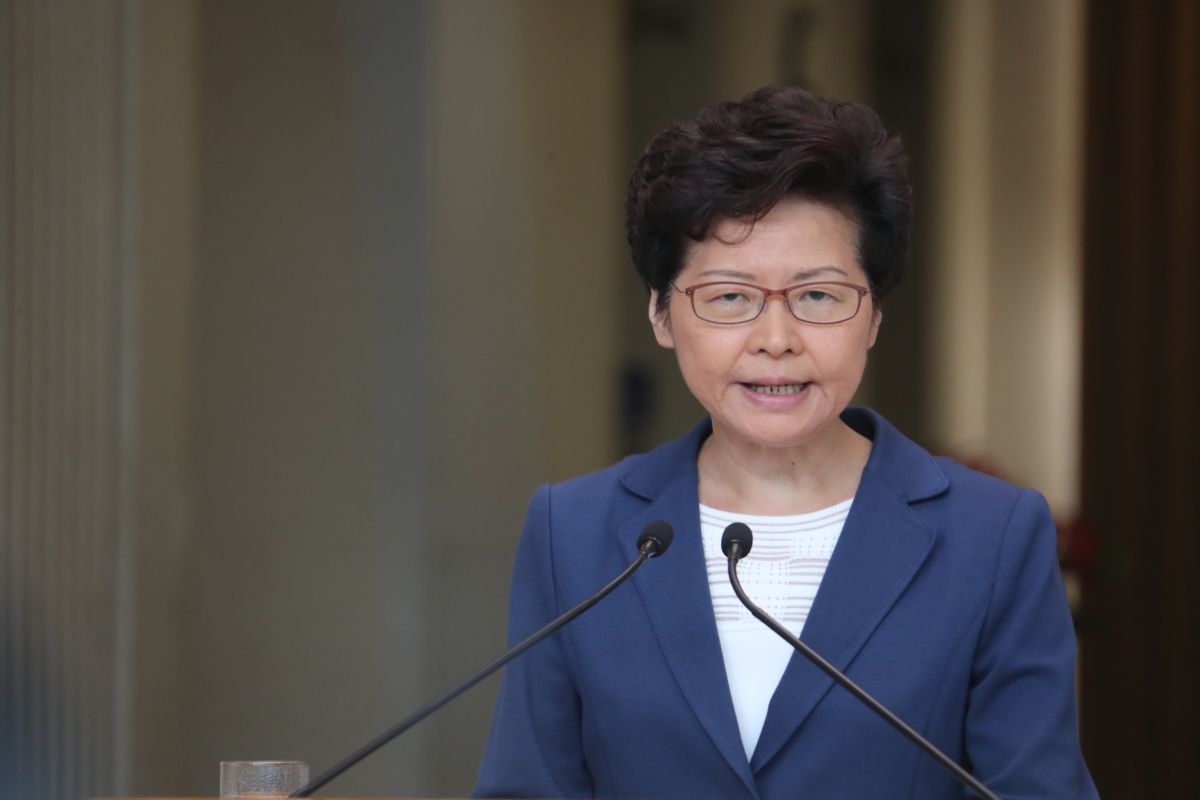US pauses aid to Ukraine, say reports
US President Donald Trump has paused all aid to Ukraine till as much time as it takes to determine President Volodymyr Zelensky's commitment to ending the war with Russia,
The government was at least partly responsible for the election result, she added.

Hong Kong leader Carrie Lam (Photo: IANS)
Amid ongoing anti-government protests in Hong Kong, the city’s embattled leader Carrie Lam on Tuesday revealed that she had apologised to members of the pro-Beijing camp for its landslide loss in the November 24 district council elections, after meeting some of the defeated candidates.
It was the first time that Lam, who is yet to meet any of the victorious pan-democrats, openly apologised to her allies since they suffered the humiliating reversal two weeks ago, losing control of 17 out of 18 district councils amid long-running unrest fuelled by anger at the Chief Executive and her administration, the South China Morning Post newspaper reported.
Advertisement
Pro-Beijing candidates won only 60 out of 452 seats.
Advertisement
While speaking ahead of her weekly Executive Council meeting, Lam said that she had met members of the pro-establishment camp recently.
The government was at least partly responsible for the election result, she added.
“The defeat of the pro-establishment camp undeniably has a direct relationship with the government,” she said, saying some voters did not care about candidates’ performances in their districts but “merely expressed their dissatisfaction with the government”.
In November, The district council elections held in Hong Kong every four years are normally a sleepy affair, with low turnout, mostly because councillors have very limited powers and budget, as well as a reputation for graft.
The district council polls normally stir little excitement, dominated by candidates allied to the China-backed government with a remit over everyday tasks such as rubbish collections and planning decisions.
The poll to choose 452 councillors across 18 districts is the closest voters in Hong Kong get to direct representation — but turnout is usually unremarkable.
The protests, which have been drawing massive crowds since June following a contentious proposed extradition law that has been pulled by the government, have mutated into a movement that seeks to improve the democratic mechanisms that govern Hong Kong and safeguard – or expand – the region’s partial autonomy from Beijing.
The controversial China extradition bill was withdrawn in early September but the movement has morphed into a wider campaign for greater democracy and against alleged police brutality.
The semi-autonomous financial hub has been battered by the often violent demonstrations pushing for greater democratic freedoms and police accountability in the starkest challenge the city has presented to Beijing since its 1997 handover.
The election, which drew a record 71.2 per cent turnout, was seen as a showdown for Lam’s government, months after it inadvertently sparked the angry protests with a controversial extradition bill, which it has since withdrawn, South China Morning Post reported.
(With inputs from IANS)
Advertisement